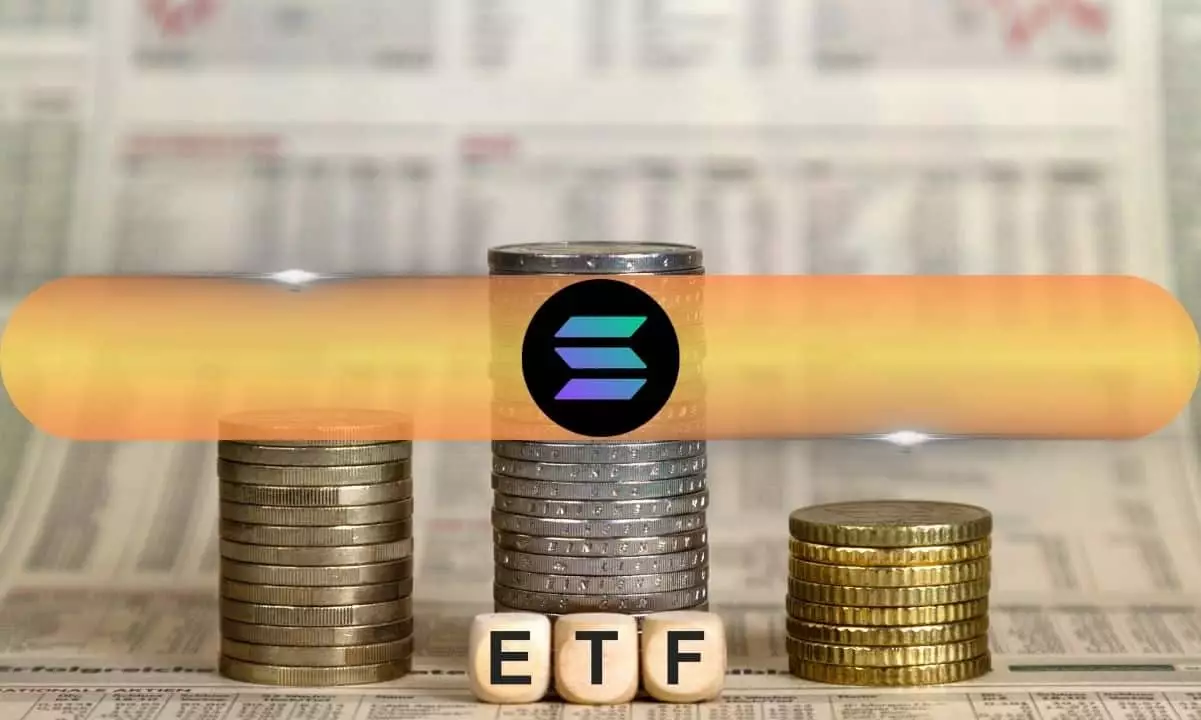The CBOE (Chicago Board Options Exchange) is at the forefront of a significant development in the cryptocurrency landscape by filing new applications for Solana-based exchange-traded funds (ETFs). This bold move comes from four prominent asset managers in the United States, signaling a renewed interest in launching Solana ETFs that could reshape the availability of cryptocurrency investments for mainstream investors. Noteworthy among these applications are the VanEck Solana Trust, the Canary Solana Trust, the Bitwise Solana ETF, and the 21Shares Core Solana ETF.
It is crucial to recognize that the current applications are not arising in a vacuum; they follow a series of attempts over the past year that were met with resistance from the Securities and Exchange Commission (SEC). Previous rejections have dampened the spirits of asset managers who initially showed enthusiasm for entering the Solana ETF market. A significant setback occurred in the middle of 2024 when, although CBOE had filed proposals for Solana ETFs, these filings vanished from the exchange’s public domain. This disappearance hinted at likely rejections or possible withdrawals, leaving stakeholders puzzled regarding the future of Solana ETF aspirations.
To compound the uncertainty, clarity was provided by a VanEck executive, who indicated that even amidst the removal of filings, the intention to launch remained intact via active S-1 prospectuses. This disclosure suggested that despite regulatory hurdles, companies were still committed to the Solana ETF cause.
Renewed Applications and Regulatory Challenges
As of January 28, 2025, CBOE submitted fresh applications for Solana ETFs following a slalom of previous submissions, setting the stage for another tense regulatory scrutiny from the SEC. The landscape changed dramatically with the recent departure of Gary Gensler, a known skeptic of cryptocurrency, from the SEC. His successor, Paul Atkins, is viewed as more favorable to digital assets, raising speculations that these filings might have a better chance of success than past attempts.
However, it is essential to highlight that Solana’s classification looms large as a significant barrier. The asset is caught in the crosshairs of legal scrutiny around its status as a security versus a commodity. Proponents of Solana ETFs advocate for its classification as a commodity, underpinned by its decentralized architecture and use of a Proof-of-Stake consensus mechanism. However, ongoing litigation concerning the SEC’s stance on SOL complicates the prospects.
The coming weeks will unveil whether the recent movements from CBOE will culminate in the approval of the first U.S. Solana ETF. Should these applications be successful, it could open doors for institutional investors and retail traders alike, fostering broader acceptance of cryptocurrency within traditional finance. Nonetheless, the uncertainty tied to the regulatory environment demands cautious optimism. The cryptocurrency sector is known for its volatility, and the quest for compliant investment vehicles like ETFs remains fraught with challenges. The resolution of these regulatory questions will ultimately determine if Solana will successfully break into the realm of mainstream investment.

